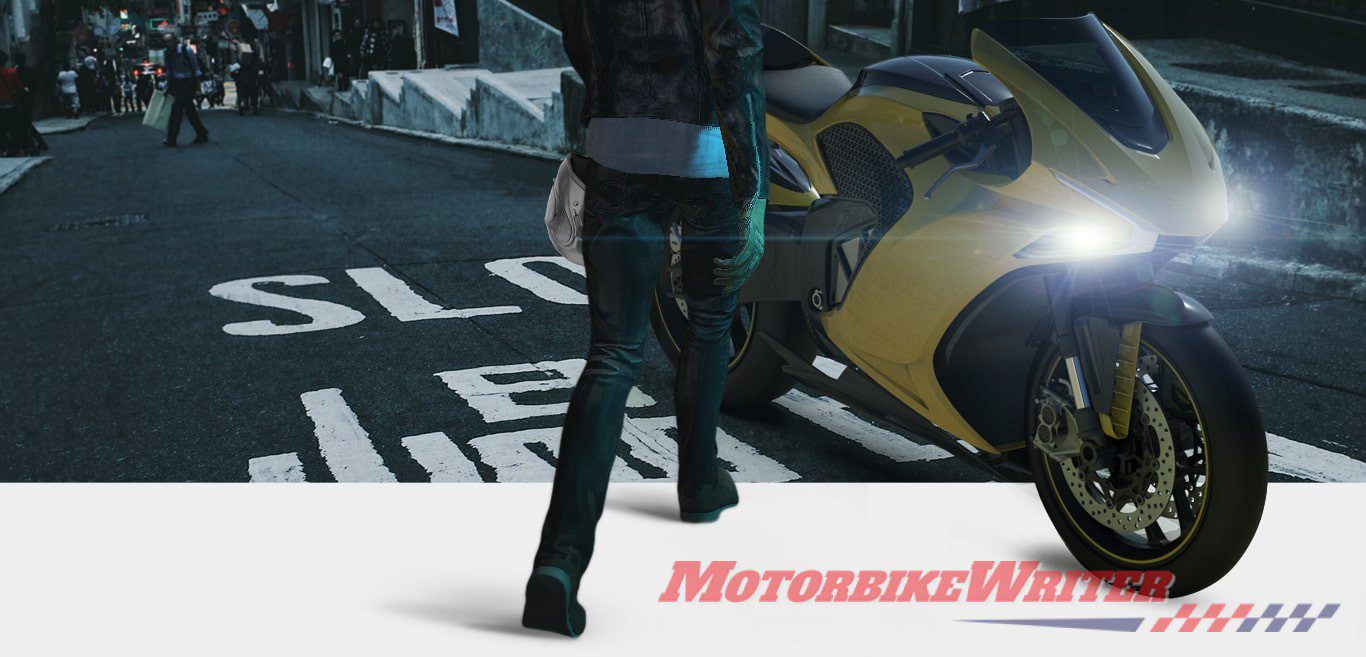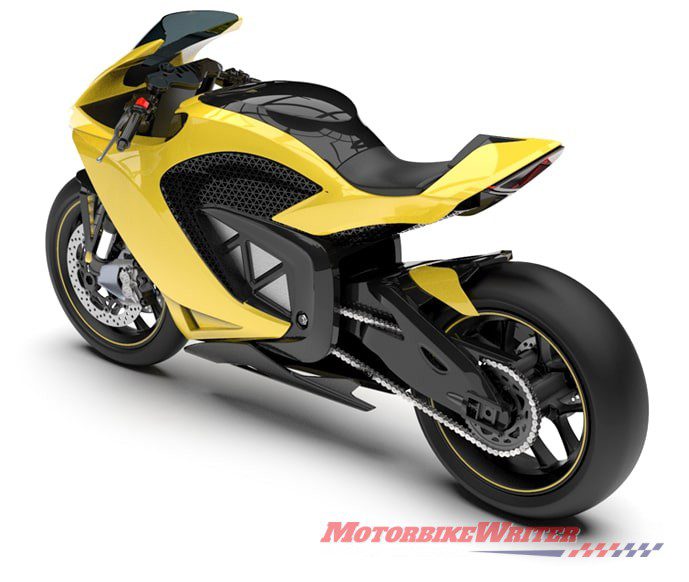Safer hi-tech motorcycles, such as the Damon X above, will attract the future generation of motorcyclists scared of the dangers of riding and possibly save the industry from extinction, a motorcycle start-up says.
Damon Motorcycles CEO and founder Jay Giraud has produced a white paper about the future of the motorcycling industry in which he says advanced safety systems may save motorcycling.
He predicts a future “where the idea of rider accidents being inevitable and unavoidable will be a thing of the past, along with external valve gear and pulley transmissions”.
Damon X smart bike
Damon recently raised $US2.5m in seed funding and has partnered with Canadian police to improve rider safety.
Their Damon X will use 360-degree sensors and cameras to detect potential hazards in front and behind and send alerts via 5G to the rider.

“Such unheard of levels of safety brings with it a potential for cataclysmic change within the entire motorcycling community, from manufacturer to commuter,” Jay says.
Industry outdated
Jay says the motorcycle industry has outdated marketing messages.
“The manufacturers currently failing to attract the next generation of riders with outdated promises of ‘thrills and adventure’ will have something much more relevant to offer.
“It’s the promise of an immeasurably safer riding environment created by the type of advanced technology so wholeheartedly embraced by today’s millennial customer.”
Jay points out that millennials make up 25% of the world’s population with a combined purchasing power of $US13 trillion, increasing to $US22t in the next five years.
“This age group is traditionally one that fully embraces the two-wheeled culture and one which the motorcycle industry fully expected to take the baton from the rapidly diminishing baby boomers,” he says.
However, as companies such as Harley-Davidson have recognised, their customers are ageing and parking up their bikes.
Meanwhile, millennials are not attracted to motorcycles for a variety of reasons including high student loans and aversion to risk-taking.



Complete automation unlikely
Jay says that while cars and other vehicles are heading toward being fully autonomous, “it is highly unlikely that motorcycling will ever evolve towards complete automation”.
“There is a purity to motorcycling that no rider would voluntarily relinquish in favour of convenience or simplicity,” he says.
However, he says the evolution of accident avoidance for motorcycles is inevitable, making motorcycles safer and more attractive to millennials.

Jay says advances in artificial intelligence, radar systems, hi-res digital, and environmental sensors have made them smaller, more reliable and cheaper, making them more suitable for use on motorcycles.
“As the world shifts towards autonomous driving, the need for safer, more intelligently enabled motorcycles will grow at the same pace,” he says.




